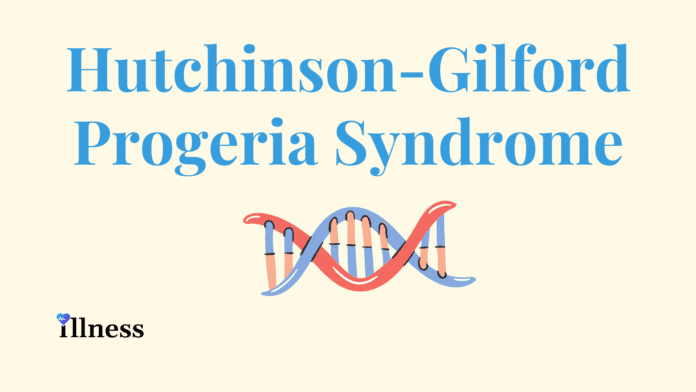Overview Of Hutchinson-Gilford Progeria Syndrome (HGPS)
Progeria Of Childhood is also commonly used with the term Hutchinson-Gilford progeria syndrome. Hutchinson-Gilford progeria syndrome (HGPS) is a genetic condition characterized by the dramatic, rapid appearance of aging beginning in childhood. Affected children typically look normal at birth and in early infancy, but then grow more slowly than other children and do not gain weight at the expected rate (failure to thrive). They develop a characteristic facial appearance including prominent eyes, a thin nose with a beaked tip, thin lips, a small chin, and protruding ears. HGPS also causes hair loss (alopecia), aged-looking skin, joint abnormalities, and a loss of fat under the skin (subcutaneous fat). This condition does not affect intellectual development or the development of motor skills such as sitting, standing, and walking.
People with HGPS experience severe hardening of the arteries (arteriosclerosis) beginning in childhood. This condition greatly increases the chances of having a heart attack or stroke at a young age. These serious complications can worsen over time and are life-threatening for affected individuals.
Commonly Associated With
Hutchinson-Gilford syndrome
Progeria
Causes Of Hutchinson-Gilford Progeria Syndrome (HGPS)
Mutations in the LMNA gene cause Hutchinson-Gilford progeria syndrome. The LMNA gene provides instructions for making a protein called lamin A. This protein plays an important role in determining the shape of the nucleus within cells. It is an essential scaffolding (supporting) component of the nuclear envelope, which is the membrane that surrounds the nucleus. Mutations that cause HGPS result in the production of an abnormal version of the lamin A protein. The altered protein makes the nuclear envelope unstable and progressively damages the nucleus, making cells more likely to die prematurely. Researchers are working to determine how these changes lead to the characteristic features of this syndrome.
Other
Hutchinson-Gilford Progeria Syndrome (HGPS) is very rare; it is reported to occur in 1 in 4 million newborns worldwide. More than 130 cases have been reported in the scientific literature since the condition was first described in 1886.



